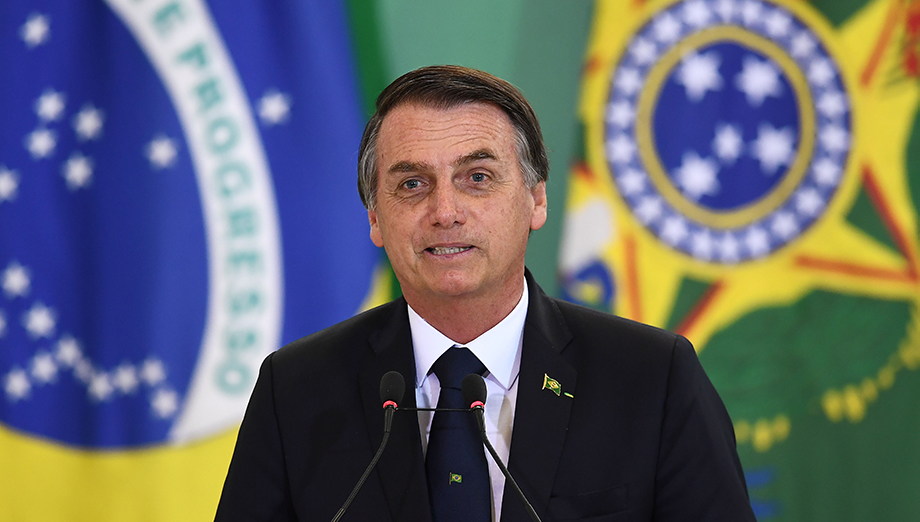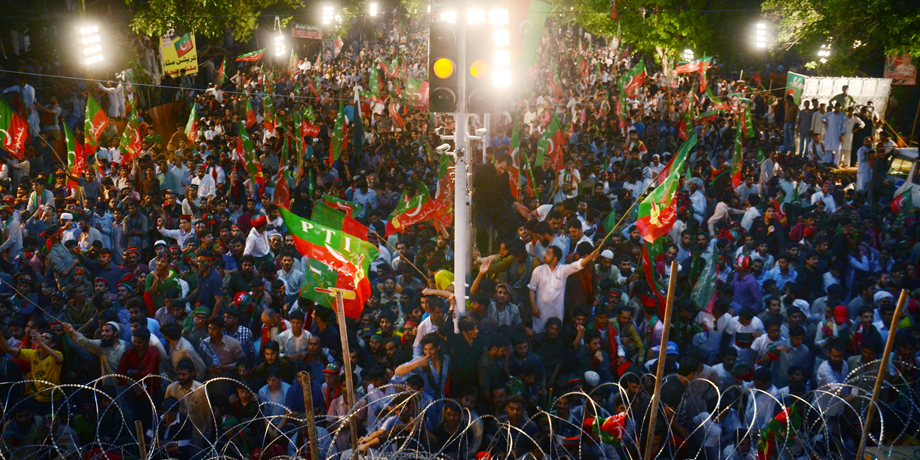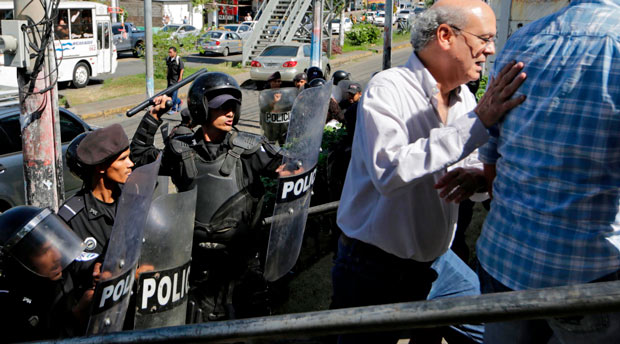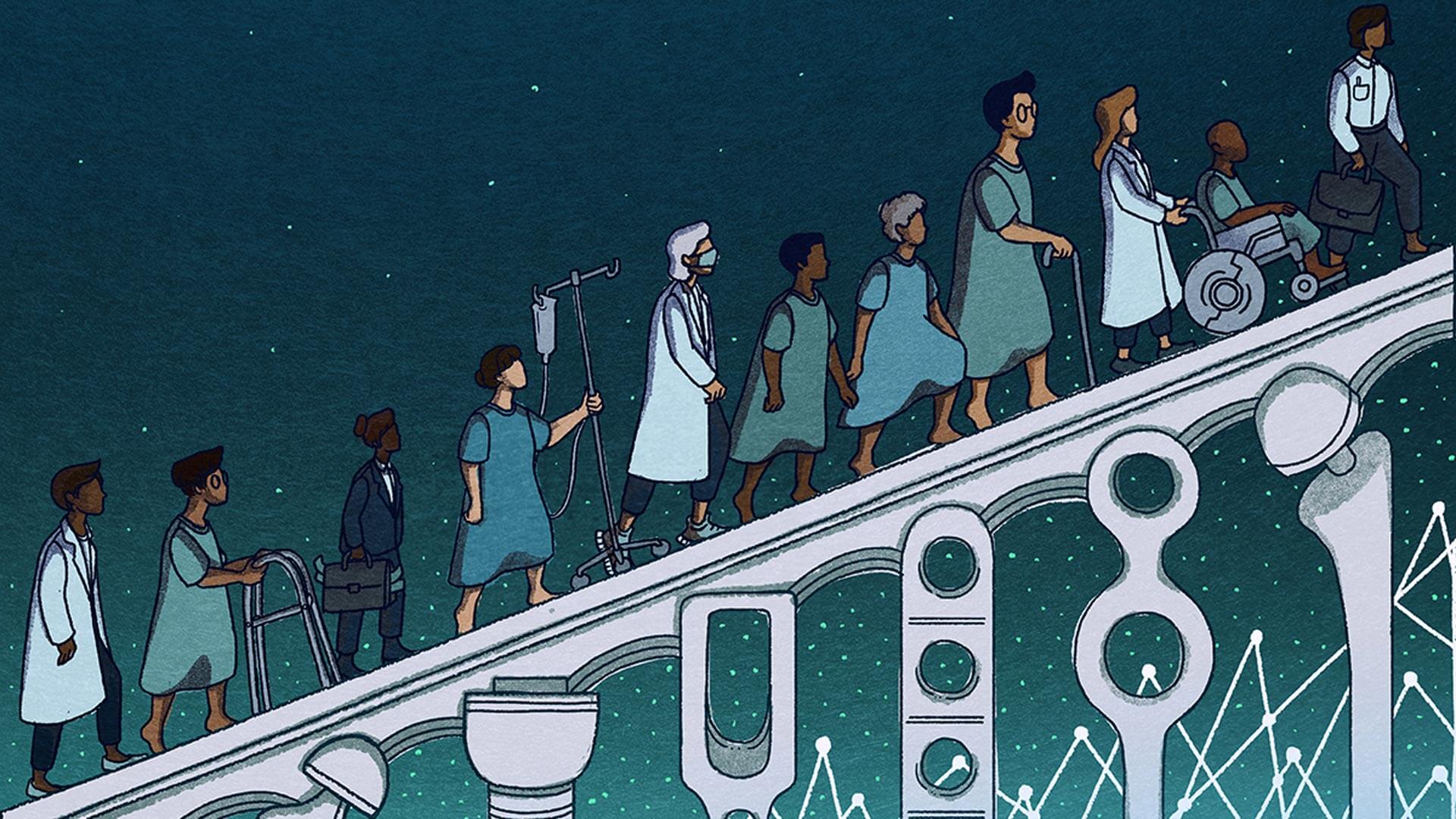ICIJ has hundreds of members across the world. Typically, these journalists are outstanding in their countries and have won many national and global awards. Our monthly series, Meet the Investigators, highlights the work of these tireless journalists.
This month, we speak to Brazil’s Natalia Viana, who co-founded the nonprofit investigative news outlet Agência Pública. Pública, as it is known, is a women-led investigative news outlet that focuses on human rights, gender equality and abuses of corporate and government power.
Viana explained how Pública developed its unique journalistic vision and the frightening threats that she and other journalists have faced during the rise of Brazil’s recently elected president Jair Bolsonaro.
Pública is a media outlet with a unique vision and mission. Can you tell us about Publica’s mission and what it does?
Agência Pública was founded in 2011. It was a time when many of these new outlets focusing on investigative journalism were opening up. Agência Pública was the first nonprofit in Brazil created for investigative journalism.
There are three characteristics that are very relevant.
One is that it’s founded and managed and directed by women. That’s why it’s called Agência Pública, rather than Publico [using the female rather than male form of the word].
The other thing is that we’ve always focused on human rights issues. We do other issues as well… But our main focus has always been investigating human rights.

The third aspect is that we work as [a news] agency. Agência Pública has its own website, but we have a network of republishers, and everything that we do goes to these republishers. That means that every article we publish on our website gets spread at least three or four times more than the reach of our website.
One part of Pública that stands out is that it was founded by women. What prompted you to start the organization, and what is the importance of having a female-led news organization in Brazil?
The ‘female-led’ ended up happening. It’s not that we decided, ‘Let’s have a female organization.’ When we sat down, me and Marina [Amaral, the other co-founder of Pública], we ended up thinking about who else would be a good partner to join us. And it was another woman, who left briefly after.
In the beginning, when we had no funding, the vast majority of the people who joined and who volunteered were women. And slowly, slowly, we progressed with the discussion about gender equality…Oddly enough, for me this was a transformation that happened, it was a process. In the beginning, I used to say that I am not a feminist.
But if you look at the government that Brazil has now, issues of gender equality have become the center of the agenda. Because rights that have always been granted are under threat. So you have the minister of human rights, Damares [Alves], her priority is to push for legislation that will make the fetus — even the embryo — have rights in the law. This, of course, opens more space for the criminalization of women who want to abort.
It was not something where we had this vision from the beginning, but it became clearer and clearer that we had a responsibility to report on the rights of women.
Last year you worked with ICIJ on the Implant Files, a global investigation of the medical device industry. What were Pública’s key findings, and were there any moments or experiences that stood out to you from Pública’s reporting?
When we were approached by ICIJ about implants, we immediately were extremely interested in the story of the birth control device Essure. Our reporter Anna Beatriz Anjos started digging, and we found that in Brazil, as well as in the U.S., there were groups of victims of the Essure implant that were gathering together to try to organize.
The main thing that we found was that in Brazil the implant Essure was actually provided by the state. It was provided for free by the public health system at the expense of all of us. Women were offered the procedure while engaging in family planning sessions.
After the scandal hit, then there was a little bit of movement in the Brazilian government to stop the sale of Essure. But that was reversed after lobbying from the company, and it continued being sold. The only moment when it stopped being sold was when Bayer itself decided to stop it.
So we had a very interesting local angle to that story.

Why was Essure an issue that Pública was so quickly prepared to investigate?
It’s because over the years we have written so much about women’s issues — women who suffer violence, abortion issues, health issues. So we have reporters who know how to talk to women… Our reporters are trained in these issues.
Another investigation that Pública published last year was called Collateral Damage, which examined the increasing use of the military in public security operations. What were the biggest findings from that project?
Brazil for the past 10 years has been using the Army as a replacement for the police. So the Army has been doing operations in Rio to fight the traffickers, and this has increased enormously. Since the World Cup, since the Olympics and then in the last few years, the Army was in the streets of Rio practically every second.
Because you had the Army, which is trained to kill, in a heavily populated area like a favela [low-income neighborhood], if there is a shooting, they will probably hit somebody, and this person may be just a civilian who was not involved in crime at all.
But it’s very hard to identify who is innocent and who is not. Our media tend to accept the first version that the police states or that the Army states, saying ‘Oh yeah, this person was in a shooting.’ Or if there is a shooting in a favela, they will say ‘Six suspects were killed.’
We found out that 32 people were killed by the Army in the last 10 years and that, for about a third of those, we have serious evidence that they were completely not related to crime. They were just people who lived in the areas and were shot by the Army. And they were accused by the army of being criminals. So you have the family members who are fighting to clear their names because they were not just shot, they were reported in the media as being criminals. It’s a very painful process.
What are the key elements that you look for when deciding to approve a project for Pública – what defines a good pitch?
Our priority is investigating human rights. Another thing is that our public is Brazil. And the third is investigating the powerful.
What are the key themes we want to focus on? Public administration, government, companies, human rights violations and social impact, the judiciary, and then we also investigate threats to the Amazon and minorities, which in Brazil includes indigenous people. And of course gender issues as well.
Everything that we’ve been reporting on is under severe attack by the government. We have to work on it. We have no choice.
How is the new government affecting your work, specifically recently elected President Jair Bolsonaro, the far-right populist whose supporters have attacked journalists and who has threatened to crack down on independent media? What do you think Bolsonaro’s presidency will mean for freedom of the press in Brazil?
There are several challenges, and they are on different levels. He is like U.S. President Donald Trump, criticizing the media left, right and center to legitimize himself. Then he has actually made specific threats to cancel funding for specific newspapers and TV, which is a level more serious… We don’t how far Bolsonaro will go.
Then there is another thing which is very serious, and which is growing in Brazil, which is massive attacks – I call them virtual lynching of journalists. Not necessarily caused by Bolsonaro himself or his ministers but supported by them. For instance, they criticize very harshly one specific journalist, then you have thousands of people who support Bolsonaro who are much more violent. They attack this person, they call them names, they hack their accounts, they get pictures of their families, they threaten their lives.
They did this to Agência Pública last year. They got our profiles on Facebook and exposed them and said these are the people who are trying to censor the right wing … This is happening. It needs to be talked about, and it can’t be normalized.
What do you see as the role of Pública in Brazil during Bolsonaro’s presidency?
We have decided to focus on investigating human rights issues, as we have always done. We have decided to pay special attention to what the government is doing and more than that, how government actions are affecting people.
Some actions that the government takes have direct consequences in people’s lives. Bolsonaro’s career was a lot based on homophobic remarks and racist remarks and attacking feminists. And this caused … a lot of people to get beat up in the streets [during the voting]. Journalists, gay people, and black people were being attacked physically or verbally.
So we did a thorough look into all of these cases, we piled them up, and we published a report on that. We have to follow in a methodical way the human rights violations that are happening in society.
What are you going to do to keep yourself and your colleagues safe?
We’ve taken a couple of measures. We have changed our ways of communicating, and we have protocols for reporting from the field. But if you have a virtual lynching, it’s still very hard [for an individual] to resist. So we are discussing forming networks for support together with other journalists.
The positive side to all of this is that the Brazilian media is showing vitality and is engaging in reporting on what the government is doing. I think, like in the U.S., Brazilian media and investigative journalism, in particular, is going to show more and more that it is extremely relevant. So I think this may also be a process in which we end up showing strength and being recognized as an essential part of a democratic society.



